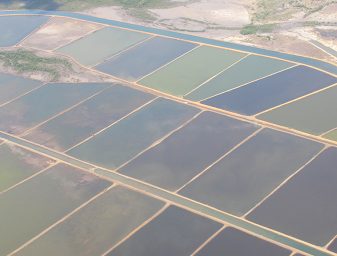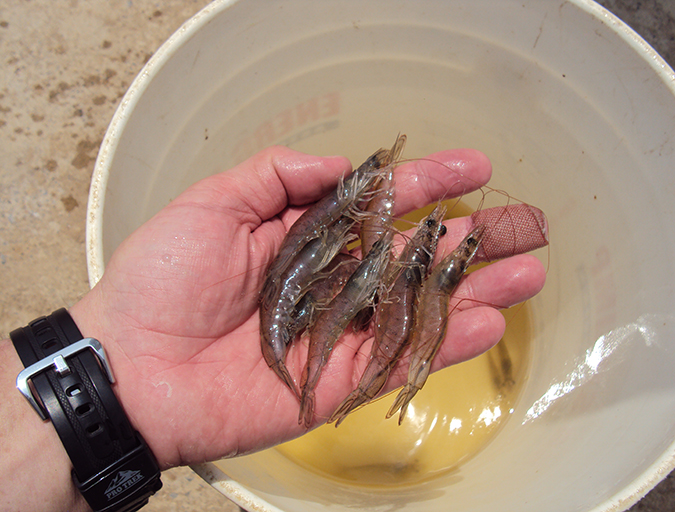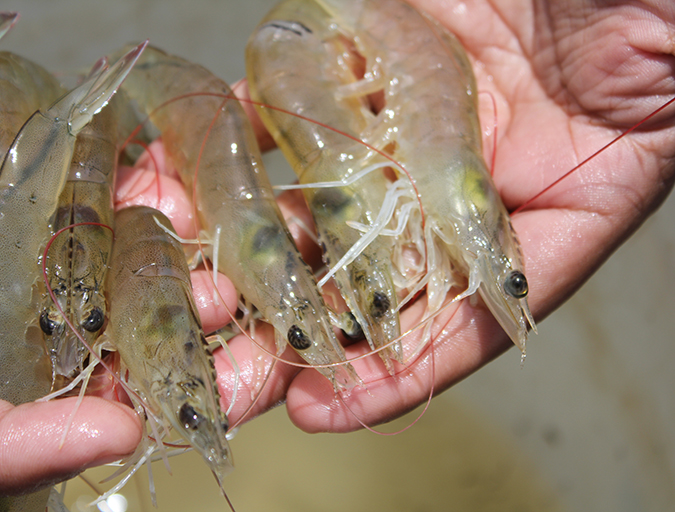Web-based educational program grows with initial courses available in English, Chinese, Vietnamese and Spanish
 Aquaculture’s growing importance in meeting global nutrition needs comes with strong socioeconomic opportunities. With many future jobs in producing, processing and delivering seafood to the marketplace, the need for trained aquaculture practitioners and related suppliers is growing.
Aquaculture’s growing importance in meeting global nutrition needs comes with strong socioeconomic opportunities. With many future jobs in producing, processing and delivering seafood to the marketplace, the need for trained aquaculture practitioners and related suppliers is growing.
The nonprofit Responsible Aquaculture Foundation (RAF), an organization established by the leaders of the Global Aquaculture Alliance (GAA), is answering a growing need for targeted aquaculture training. Its newly unveiled global online education platform will enable the further development of a sustainable aquaculture industry.
“We are establishing a structure of expert technical committees to gather and condense the most meaningful and relevant information,” RAF President George Chamberlain said. “We want to present the most important elements of aquaculture best practice so that practitioners everywhere can understand underlying processes, benefit from the experience of others and implement what works.”
Launched earlier this year, the first RAF online course – Managing Early Mortality Syndrome (EMS) at Shrimp Farms – was accessed by hundreds of users representing varied sectors of the seafood industry and over 50 countries in its initial weeks. The EMS disease cost the global shrimp industry several billion dollars in losses in recent years.
An additional course addresses another emerging disease in shrimp – EHP (Enterocytozoon hepatopenaei), named for pathogen that causes it – was made available free to users. The lessons within the EMS and EHP courses present basic knowledge about the relevant pathogens, how to diagnose the diseases and how to manage them at shrimp hatcheries and farms.
Bypassing the language barrier allows RAF to more effectively teach its students what they need to know to help solve their production problems
The educational material is under development through funds provided by GAA, Resource Legacy Fund and World Bank. RAF delivers its online courses via the Moodle platform, an internationally accepted education system used by universities, government departments and other institutions.
Participants can test their knowledge and understanding by means of online learning checks integrated within each lesson. In the future, RAF will issue certificates of competence upon course completion. These assessments could be included as part of a capacity-building program for a company or organization.
“As with its parent group, the Global Aquaculture Alliance, RAF is clearly focused on communicating the evolving science of aquaculture and therefore strives to present the best information out there,” said RAF Director of Education and Outreach Steve Hart. “Our technical experts adjust courses to consider the latest reports from around the world.”
RAF has a keen focus on risks, mitigation and sustainability. RAF material will consider aquaculture standards such as those developed by GAA, the Aquaculture Stewardship Council and GlobalGAP.
RAF will also build awareness about food safety, environmental and social impacts of aquaculture development Hazard Analysis Critical Control Point (HACCP), the Codex Alimentarius food standards of the World Health Organization and the United Nation’s Food and Agriculture Organization, the Global Food Safety Initiative, and the FAO Technical Guidelines on Aquaculture Certification.
In addition to English, site users can learn how to manage EMS and EHP at shrimp farms and hatcheries in Chinese, Vietnamese and Spanish. Translations of RAF courses from English to additional languages are under way to make the material more accessible around the world.
“These translations really expand our reach into new regions,” Hart said. “In addition, bypassing the language barrier allows RAF to more effectively teach its students what they need to know to help solve their production problems.”
User locations now reflect over 100 countries. As it grows, RAF’s education platform will be refined, as appropriate, for the cultures of different countries.
Author
-
Global Aquaculture Advocate
For further information on potential associations with the Responsible Aquaculture Foundation Education Program and its activities, contact Steve Hart, RAF Director of Education and Outreach.
[103,114,111,46,101,114,117,116,108,117,99,97,117,113,97,101,108,98,105,115,110,111,112,115,101,114,64,116,114,97,104,46,101,118,101,116,115]
Related Posts

Health & Welfare
New management tools for EHP in penaeid shrimp
Authors examined the histological features from shrimp infected with the emerging microsporidian parasite Enterocytozoon hepatopenaei (EHP). A PCR assay method was used to detected in hepatopancreatic tissue, feces and water sampled from infected shrimp tanks, and in some samples of Artemia biomass.

Health & Welfare
Probiotics benefit Pacific white shrimp challenged with AHPND
A study was conducted to measure the effects of commercial probiotics on Pacific white shrimp in a standardized AHPND challenge model under controlled laboratory conditions. Results show that the probiotics treatments by themselves have beneficial effects, such as higher survival and histological signs of hepatopancreas regeneration.

Health & Welfare
Probióticos benefician al camarón blanco del Pacífico desafiado con AHPND
Un estudio fue llevado a cabo para medir los efectos de probióticos comerciales en camarón blanco del Pacífico en un modelo de desafío a AHPND estandarizado bajo condiciones controladas de laboratorio. Los resultados muestran que los tratamientos de probióticos por sí mismos tienen efectos beneficiosos, como una mayor supervivencia y signos histológicos de regeneración de hepatopáncreas.

Health & Welfare
对虾肠胞虫病 (EHP) 的新管理方法
本文介绍了新兴对虾微孢子虫病(EHP)的组织学特征,使用了对患病对虾肝胰腺组织,排泄物,养殖水缸中水样和一些卤虫生物量的PCR化验分析的方法来检测到EHP的存在。(Editor's note: This article was originally published on the Advocate in English on April 15, 2016.)


